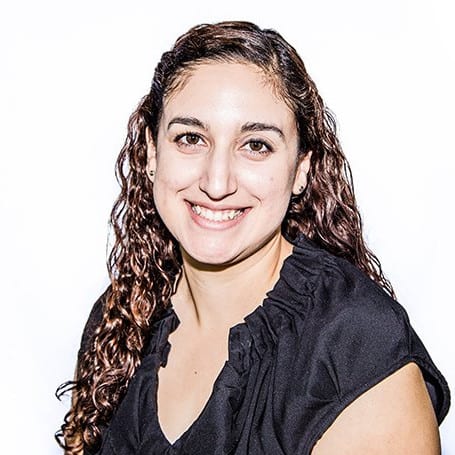The Pulse
How to Land a Healthcare Job When You Don’t Know Anyone
Category: Medical Careers
People choose careers in healthcare for a variety of reasons, from earning money to saving lives. But what’s a career if you can’t land a job?
The old adage, it’s all about who you know, has some truth to it. But there are steps you can take now to increase your chances of finding employment in the medical field, even without any connections.
Here are five ways to land a healthcare job when you don’t know anyone.
1. Attend a conference
If you’ve already reached out to your network and exhausted all of your connections, it can be frustrating to feel like you have to start at square one. Fortunately, expanding your network is just an event away.
A good place to start is alumni events and professional associations. You never know who you might meet here.
According to Andrea Clement Santiago on Verywell Health, healthcare recruiters attend these events. She recommends not only attending, but also making sure you’re in the directory, so recruiters know how to find you.
Unsure where to find these conferences? Start with websites targeting your profession. For example, Nurses.org has compiled of list of nursing associations by state, and eMedEvents has a list of upcoming events that can be filtered by specialty.
2. Network online
Santiago refers to networking as “an old skill with a new twist” because it’s no longer just a face-to-face interaction. The internet and social media have made it possible to network from your own home—even within fields as tangible as healthcare.
Just make sure your online presence is as professional as your in-person presence.
Linkedin, Facebook, and Twitter are perfect outlets for this purpose. There are also social media sites specifically for healthcare professionals. A great example of this for physicians is Sermo.
3. Apply on healthcare job boards
There are job boards, and then there are healthcare job boards specifically for people in the field (like you).
The problem with the more widely-known job sites like Indeed.com and Craigslist is that they’re too broad and aren’t designed to help professionals in the medical field show off their strengths. Recruiters are often overwhelmed with the number of unqualified applicants who submit job applications, so qualified candidates get lost in the digital clutter. It’s not you, it’s them.
According to career adviser Liz Ryan on Forbes, your application might not ever be read by human eyes because employers use keyword searches to sort and screen the hundreds of applicants.
On the other hand, a healthcare job board, like Intiva Health, has access to thousands of available clinical positions. Your profile allows you to showcase your resume and skills, so you can feel confident that prospective employers can get a more holistic view of you as a person and healthcare professional.
Employers can find and reach out to you, too. In fact, your resume is anonymous until an employer reaches out to connect. You determine whether to accept their request, giving you more control on Intiva Health’s job board than other job boards available to the masses.
Plus, it’s more than just a job board. You’ll have access to facility reviews and ratings, so you can get a glimpse of the company and culture before applying for a job or accepting an invitation for an interview.
4. Prepare heavily for the interview
The interview process for a healthcare job isn’t too different from the interview process for other professionals outside of the medical field. Getting the interview is just the beginning, though.
When preparing for your interview, stick to tried-and-true advice, such as:
- Dress sharp
- Bring copies of your resume
- Have references
- Research the facility and interviewers
- Bring questions that you’re ready to ask during or after the interview
- And remember that you’re interviewing them as much as they’re interviewing you
Other pieces of advice Santiago has for interviews include: understanding the process so that you’re not caught by surprise if there are five or more rounds of interviews at a clinic or hospital; and planning your trip ahead of time. (Arriving late does not make for a good first impression.)
Preparing for an interview is especially important if you got to this stage without a referral from a friend. There’s no one there to vouch for you, only yourself. You’ve worked so hard to get this far. This is your moment to shine. Take it!
5. Reconsider your job preferences
It’s perfectly normal to have a set of criteria on your wish list for a job, but sometimes those opportunities just aren’t available during your job search. What then?
Instead of calling it settling, let’s refer to it as a “shift in expectations.”
Megan Malugani on Monster.com recommends keeping an open mind. Broaden your search. Look at other cities. That facility you discounted a few weeks ago might not meet all of the items on your checklist now, but it may offer other benefits you hadn’t considered. It can turn out to be the most perfect, rewarding job opportunity.
If you’re able to move, you can find a job in the medical field that is potentially much more lucrative than had you scored a job at your dream facility.
Parija Kavilanz on CNN reported that some areas of the country are in such desperate need for healthcare professionals, like nurses, that new hires are offered five-figure bonuses, tuition reimbursement, and even a place to stay, free of charge.
A path forward
Finding a job can take a lot of effort, but there are ways to make it a little less stressful and a lot more successful. Meet people, sign up for a job board, and get to applying. Before long, you’ll find yourself back to doing what you love most: helping patients.
